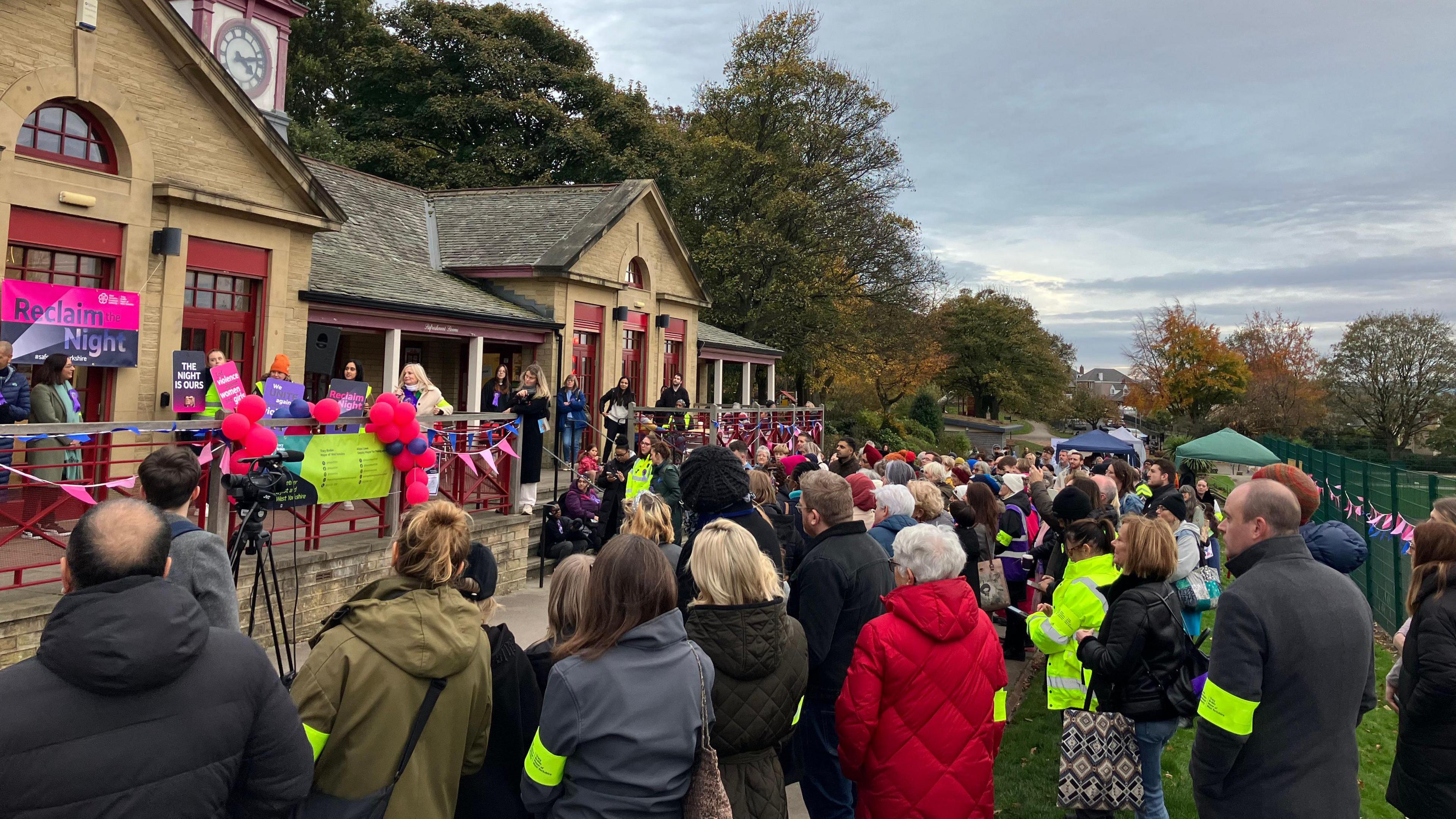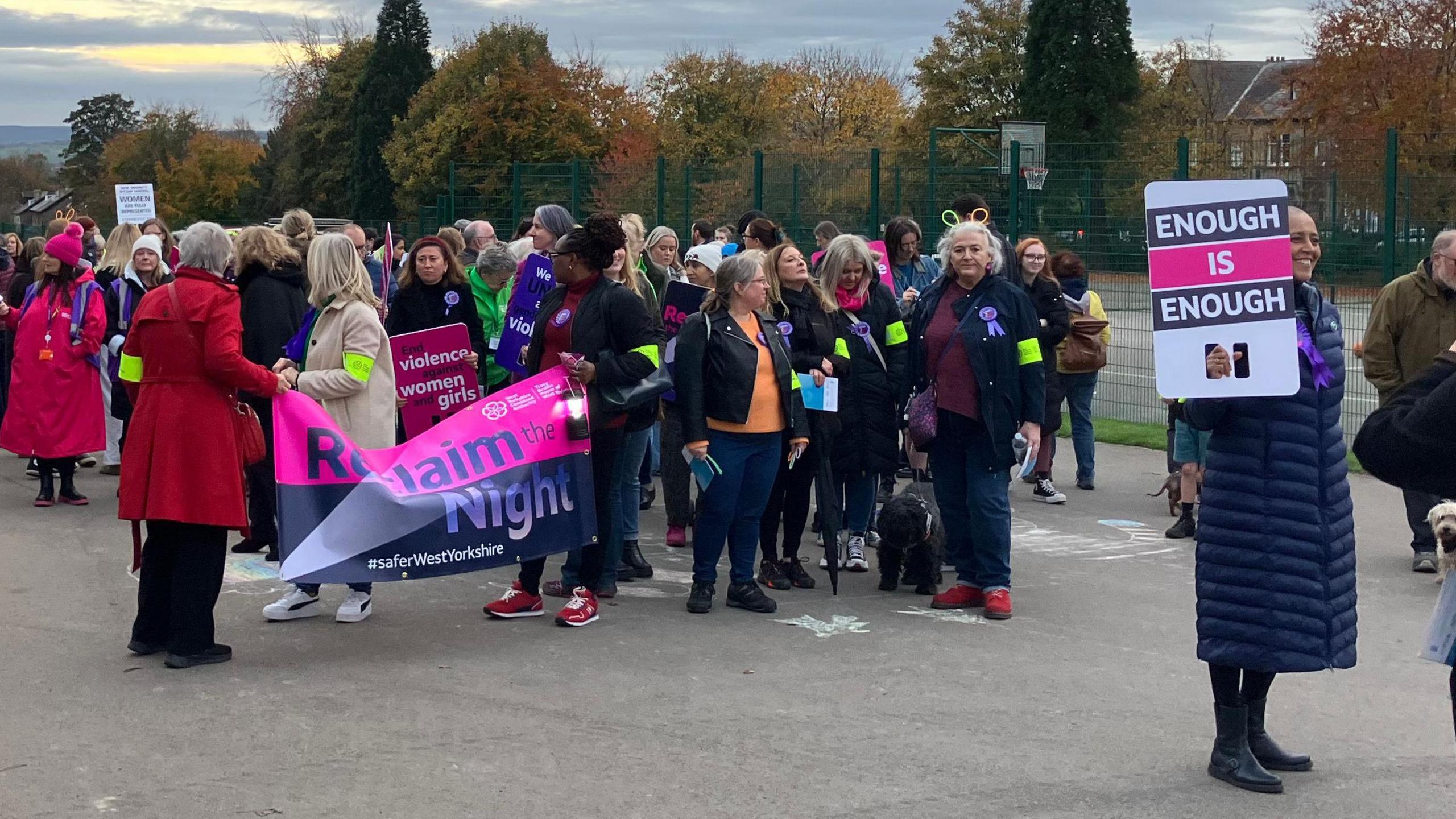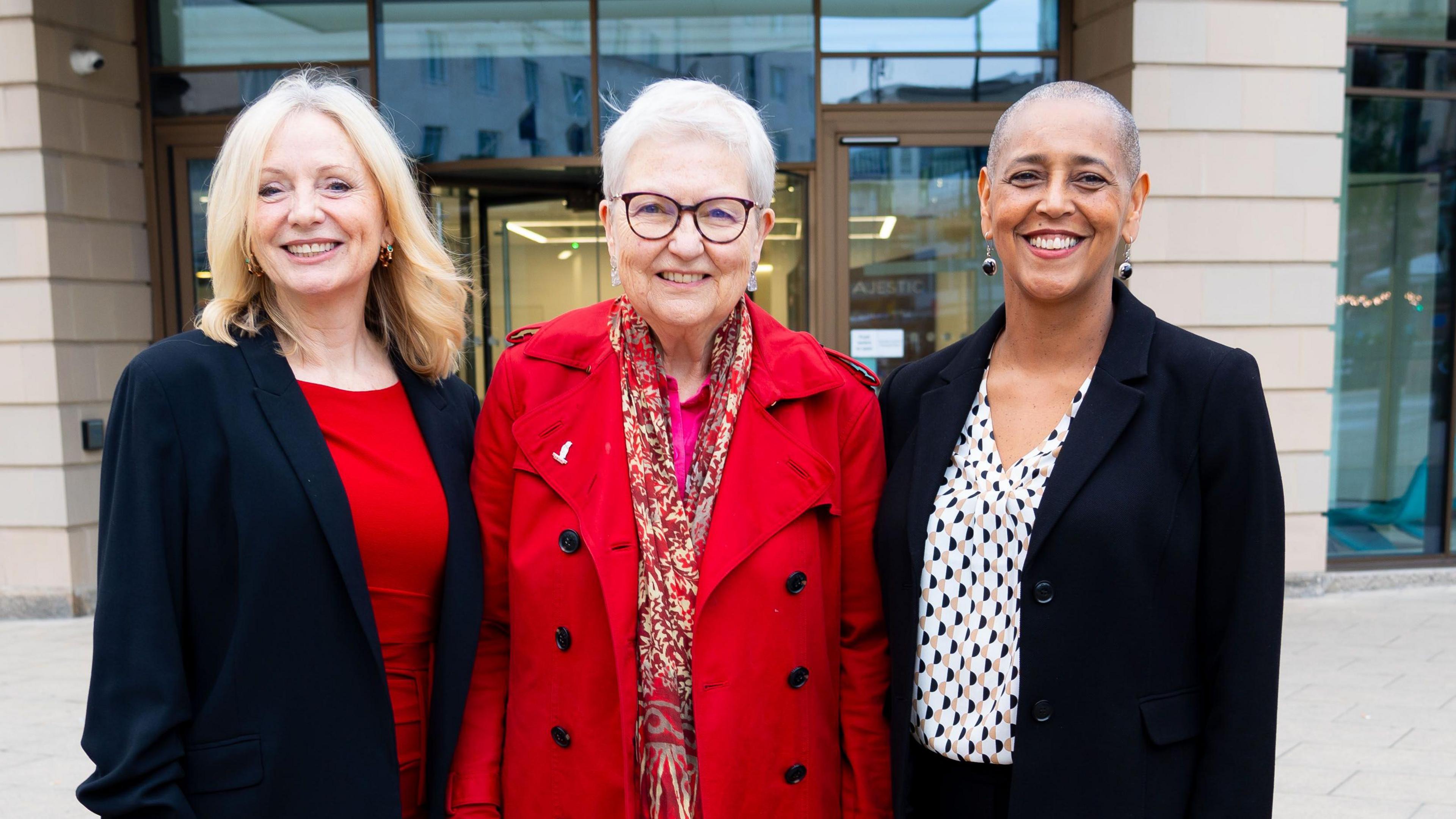Women reclaim the night 47 years after first march

Mayor of West Yorkshire Tracy Brabin was among the speakers at the march
- Published
A Reclaim the Night march has been held to empower women and girls to stand up for safer spaces as the evenings get darker.
Mayor of West Yorkshire Tracy Brabin was joined by Al Garthwaite, last year’s Lord Mayor of Leeds, who played a key role in the first marches in 1977.
They were joined in Huddersfield’s Greenhead Park by deputy mayor for policing and crime Alison Lowe and more than 200 supporters.
Ms Garthwaite said she would like to foresee a day when “women feel safe to walk out in a public place at night” but there was still a need for marches almost 50 years later.
She said: “There’s absolutely value, there’s real need for it. They’re empowering, they’re really important, they have changed.
“Now we want male allies and we want men to challenge other men.
“For bad people to win it takes good people to stay silent.”

Deputy mayor for policing and crime Alison Lowe led the march
Reflecting on the start of the Reclaim the Night movement, she said “we were greeted with incomprehension”.
She said: “At that time, and I fear still sometimes today, if a woman was out on her own and something bad happened the questions would be: why was she out at that time, wearing what she was wearing, in that place, without a man? She must be asking for it.
“As for the thought of a mayor being interested, they wouldn’t have come within 100 miles of it.
“We can’t rest on our laurels, but if you keep protesting against oppression you feel better and in the end you do make change.”
Hosting a stall at the event, Rebecca Kane, from New Directions Services, explained how the organisation was offering vulnerable women opportunities to learn martial arts.
The group offers a safe space for survivors of domestic abuse, as well as young people and vulnerable women, to try fitness, martial arts and Irish dance.
She said: “It’s not just about helping people to rebuild their lives but giving vulnerable people a voice.”
Joining the protest, Charys said she had joined the march because she was tired of having to worry about walking along dark streets.
She said: “I’m sick of having to look over my shoulder every time I’m walking along, and never being able to listen to my music at full volume just because I’m afraid of who’s around me.”
Looking over shoulders
Another supporter, Helen, from Huddersfield, said she had joined the march to show her daughter, named after Emmeline Pankhurst, the importance of standing up for what you believe.
She said: “It’s very important that we’re here to show our support and stand up for the safety of women and girls and show her at a young age that you need to be active if you’ve got a cause and a reason.”
Claire said she had joined the march because she felt it was important for men to know how women lived having to “watch out for themselves”.
She said: “I always have to look over my shoulder, make sure there are no men behind me even though they might be quite innocuous.
“The more people get together we can hopefully change the world so that women can go out at night.”
Listen to highlights from West Yorkshire on BBC Sounds, catch up with the latest episode of Look North or tell us a story you think we should be covering here, external.
Related topics
- Published25 October 2024
